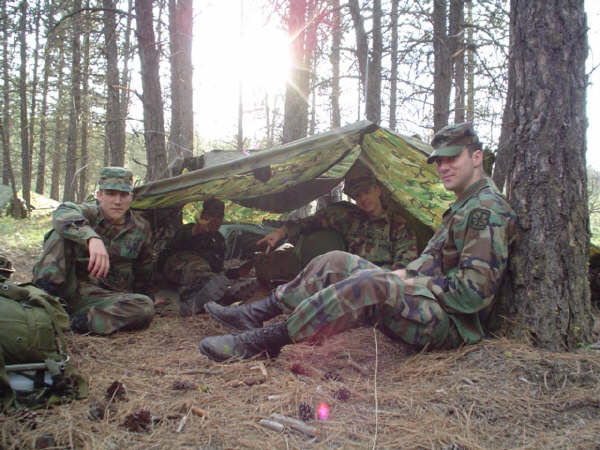How to build a DIY emergency toilet
02/01/2019 / By Mary Miller

During a survival situation, you might not have easy access to a functioning toilet. Perhaps a large-scale natural disaster just occurred and your plumbing has stopped working. Or maybe you might simply be bugging out far away from civilization. Either way, you will need to find a way to dispose of your waste properly when nature inevitably calls. Improper waste disposal is one of the quickest ways to create a potential breeding ground for disease-causing bacteria. Here is what you need to know to build your own DIY emergency toilet when SHTF. (h/t to UrbanSurvivalSite.com.)
There are many options you can choose from for building your own makeshift toilet. You can make an improvised toilet with a toilet seat on a bucket and fill it with water and some chlorine bleach. Composting toilets are sustainable solutions that do not smell or create pollution. If you think that you might be stuck in your survival situation for an extended amount of time, you will need to take into consideration a proper system for long-term basic sanitation and waste disposal. (Related: World Toilet Day highlights importance of sanitation in overcoming diseases like Ebola.)
How to build your own DIY emergency toilet
Items needed:
- 1 2×6″ wooden plank or board (about 4 feet long)
- 5 wooden screws (about 1 ½ inches long)
- 5 large washers (about 1 inch in diameter each)
- 1 furring strip (about ¼ inch thick and 3-4 feet long)
- 1 5-gallon plastic bucket
- 1 toilet seat
- drill
- fitting screwdriver drill bit
- drill bit for drilling pilot holes into wood
- circular saw
- jigsaw
- pencil or permanent marker
- measuring tape
- extension cord
- glue
Procedure:
- Place your 2×6 wooden board on the ground.
- Place the toilet seat on top of the board with the seat’s hinges on one side of the board. This is where you will be securing your toilet seat, so be sure to leave enough space for drilling your pilot holes and for cutting a crescent in the board where it can attach to the bucket.
- Use your pencil or marker to mark the holes for the seat bolts.
- Mark 2 lines on either side of the toilet seat 4 inches away from the hinge holes.
- Place the bucket upside down on your board to mark the crescent where it will attach to your bucket.
- With your jigsaw, cut your board on the mark of the crescent line.
- With your circular saw, cut your board on the lines 4 inches from the hinge holes. You should now have a piece of wood with a crescent cut that looks like part of it has been bitten off.
- Place your board on its side and hold it against the side of your bucket. The bucket should fit into your crescent “bite mark.”
- With your bucket under the top ridge, mark 5 holes inside your bucket where your bucket and your board meet. This is where you will connect them together.
- Drill 5 pilot holes through your bucket in the spots that you’ve marked.
- While holding your board against your bucket, place a washer on top of a pilot hole and drill a screw into the washer, bucket, and wood to secure them all together.
- Repeat the process for the 4 remaining pilot holes. You can lay the bucket on its side if this makes it easier to drill. Once finished, your board should now serve as a support bracket.
- Turn your bucket upright and place the seat cover on top of it. Keep the toilet seat aligned with the bucket so that your bodily waste falls straight into the bucket.
- Once properly aligned, mark the holes for your toilet seat bolts.
- Measure the distance from the top of your support bracket to the rim of your toilet seat. This is where you’ll be placing your furring strip to fill the gap since your support bracket is below the top of the bucket.
- Cut the furring strip to match the length of your support bracket.
- Glue the furring strip to the support bracket so that it is at the same level as the top of your bucket.
- Place the toilet seat back on top again and mark the holes for your toilet seat bolts.
- Drill the holes to accommodate the bolts.
- Place the bolts into the drilled holes and screw them in tightly to attach the seat.
- Lower the bolt covers and click them into place.
Learn how to build more DIY emergency gear for when SHTF by going to Preparedness.news.
Sources include:
Tagged Under: bug out, DIY, DIY toilet, emergencies, emergency preparedness, homesteading, how-to, off grid, outdoors, preparedness, preparedness and survival, prepper, prepping, prepping tips, self sufficiency, SHTF, survival, survival gear, survival skills, survivalist, toilet



















